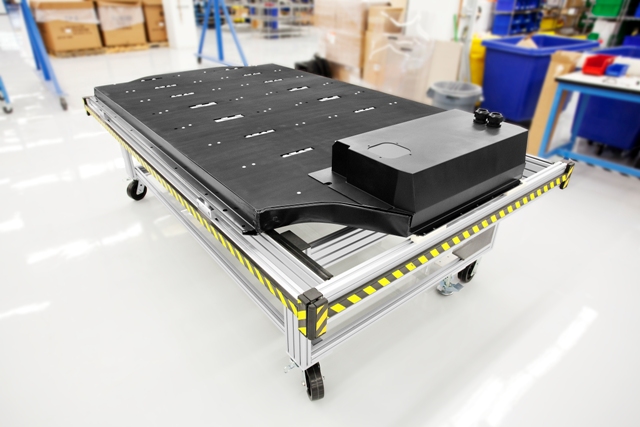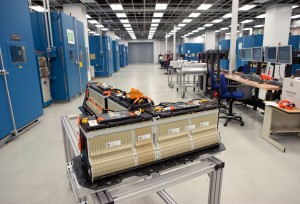You see and hear it all the time, sometimes from people who really ought to know better.
It's the notion that electric cars are going to improve incredibly, amazingly, unimaginably fast ... "because of Moore's Law."
If you see or hear that statement, folks, you should view the entire report with deep skepticism.

Tesla Motors - Model S lithium-ion battery pack
Because citing Moore's Law in the context of electric-car progress just isn't relevant.
Let's review.
The major factor that constrains the development of mass-produced, modestly priced electric cars today is the cost of the lithium-ion batteries that store their energy.
It's why most electric cars under $50,000 have packs of 16 to 24 kilowatt-hours, enough for only 60 to 90 miles of range.
Battery costs are expected to fall at about 7 percent a year--which means that by 2020, perhaps sooner, we'll be in some interesting places.
Tesla has said it plans to introduce an all-electric sedan with 200 miles of range for $35,000 for 2017 or so; GM is working on a 200-mile, $30,000 electric car as well.
That's great progress. But it's nowhere near the rate specified by Moore's Law.

Lithium-ion battery pack for 2011 Chevrolet Volt
If you recall, that formulation--proposed by Intel cofounder Gordon Moore in 1965--suggests that the number of transistors in an integrated circuit doubles every 18 to 24 months.
And the capabilities of many electronic products rise correspondingly, including the processing power of microprocessors, the memory capacity of storage devices, and the number of pixels in image sensors used for cameras and smartphones.
But battery cost reduction does not follow Moore's law, because the fundamental technology of lithium-ion cells is not based on transistors.
Over the six-year model life of a car, state-of-the-art microprocessors get more powerful by a factor of eight.
Over that same six years, using the 7-percent annual rate, battery costs fall by about 35 percent.
So when you hear someone cite Moore's Law in the context of electric-car batteries ... let that set off your warning sensors.
_______________________________________________













